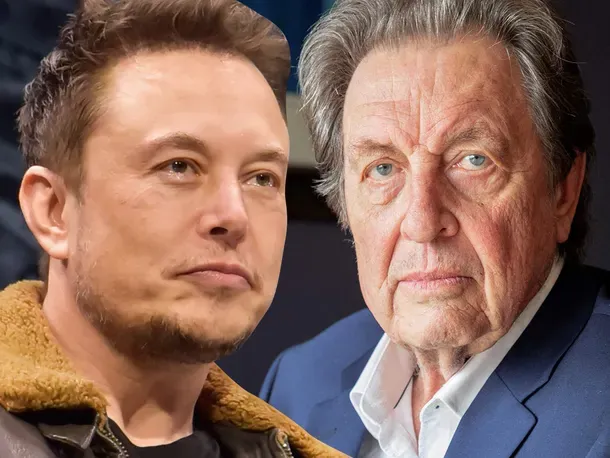Elon Musk’s Father Errol Musk Plans to Tokenize Water on the Blockchain

The Dubai Multi Commodities Centre (DMCC) is positioning itself at the forefront of global commodity trading by exploring the tokenization of water as a real-world asset (RWA). In a recent episode of the Business with Bartawi podcast, DMCC’s Executive Chairman and CEO, Ahmed bin Sulayem, discussed emerging trends in commodity markets, spotlighting an innovative project led by Errol Musk, father of tech mogul Elon Musk.
This initiative aims to tokenize water on the blockchain, potentially revolutionizing how this critical resource is valued and traded globally. By leveraging blockchain technology, Errol Musk’s project seeks to capture and monetize water resources that would otherwise be lost, aligning with broader efforts to address global water scarcity through financial innovation.
“Why allow the rain to come from the mountain, trickle down, and get lost in the sea? Collect it at the bottom, treat it, sell it. It’s your money,” said Errol Musk.
Elon Musk’s father Errol Musk is trying to tokenize water on the blockchain using real world assets - listen how below 🔊👇 pic.twitter.com/Uz9Uz37Mr8
— Bitcoin & Crypto Alerts 🚨 (@bitcoinxalerts) August 28, 2025
Transforming Water into a Tradable Asset
Tokenization, the process of converting physical assets into digital tokens on a blockchain, is gaining traction as a means to enhance liquidity, accessibility, and transparency in trading. In the case of water, this approach could transform a historically undervalued resource into a commodity akin to gold or oil. Think of it the way Bitcoin is seen as “digital gold,” a virtual representation of a physical commodity. In the same vein, tokenizing water could turn a tangible resource into a tradable digital asset.
During the podcast, Bin Sulayem emphasized that water is not a free resource; it requires significant infrastructure for collection, treatment, and distribution. Errol Musk’s initiative focuses on capturing water that would otherwise be wasted, such as rainwater flowing into the sea. Musk is quoted as saying, “Why allow the rain to come from the mountain, trickle down, and get lost in the sea? Collect it at the bottom, treat it, sell it. It’s your money.” This vision underscores the potential for water to become a regulated, tradable asset, particularly in water-scarce regions.
DMCC’s role in this space is not directly tied to Musk’s project but complements it through a parallel initiative with AQUA-INDEX, a company specializing in water commodities trading. In 2020, DMCC signed a Memorandum of Understanding with AQUA-INDEX to develop the world’s first freshwater-backed digital token, backed by verified drinking-quality water stored in global reservoirs, including reserves in Texas. This partnership aims to create a transparent and legally coherent marketplace for water trading, leveraging DMCC’s global network and blockchain infrastructure. Bin Sulayem noted that such efforts could unlock new liquidity and enable countries, particularly in the developing world, to protect and monetize their water resources with the same rigor applied to gold or gas reserves.
The significance of water tokenization extends beyond financial innovation. Bin Sulayem highlighted the global context, noting that nearly half the world’s population faces water scarcity for part of the year. He shared an anecdote about a UAE company in the late 1990s exporting Emirati spring water to Japan at a premium, which led to policy changes to safeguard domestic resources. This example illustrates the economic potential of water as a commodity and the need for regulated markets to prevent exploitation. Errol Musk’s project aligns with this vision, aiming to create value from untapped water sources while addressing environmental and economic challenges.
Stay In The Loop and Never Miss Important Crypto News
Sign up and be the first to know when we publishErrol Musk, a South African engineer and entrepreneur, brings a fresh perspective to this endeavor. His project is described as distinct yet synergistic with DMCC’s efforts, focusing on capturing and monetizing water through the use of blockchains. While specific details about Musk’s project remain limited, Bin Sulayem’s comments suggest it could involve advanced technologies like AI-driven trading platforms, which are part of DMCC’s broader strategy to integrate blockchain and artificial intelligence into commodity markets. The choice of Texas as a hub for water reserves, as mentioned in the context of AQUA-INDEX’s project, points to the strategic importance of regions with abundant aquifers, further amplified by growing interest from investors like Bill Gates in water-rich farmland.
Dubai’s emergence as a global leader in tokenization provides a fertile ground for such initiatives. The emirate’s Virtual Assets Regulatory Authority (VARA) has introduced a comprehensive framework for issuing and trading tokenized assets, making it an ideal environment for projects like Musk’s. On social media some are speculating about water’s potential as a tradable commodity and its implications for regions like Texas, where water usage by data centers has sparked debate. While these discussions remain speculative, they reflect growing public interest in water tokenization as a solution to global scarcity challenges. As DMCC expands its focus to include other commodities like saffron and cacao, water tokenization could set a precedent for how blockchain transforms traditional markets.

